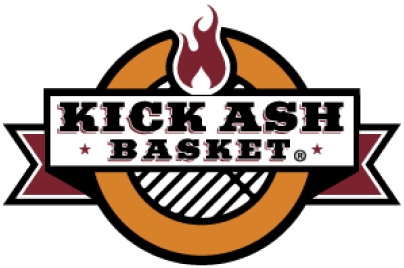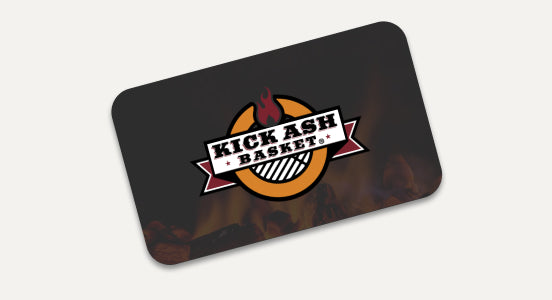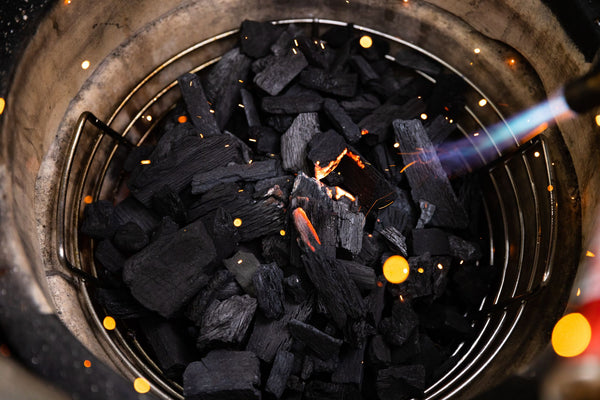
Grilling in the Winter: Top Tips for Keeping Your Grilling Going All Year
Winter grilling sounds really intimidating. After all, most of your images of grilling probably involve a camera panning to a steaming grill around some people splashing around in a pool. And when snow dusts the ground or when it gets chilly out, you don’t want to get into the pool. So why would you want to grill? Swimming equals grilling, right?
Wrong. With the right gear and the right plan, you can grill all year. It will take a bit longer and a bit more patience, but there’s nothing like a successful grilling experience in the snow. Check out our essential winter grilling gear and tips to extend your grilling season far beyond your swimming season.
Essential Winter Grilling Gear
Grill Gloves
Summer days might call for bare hands on a steel utensil to manipulate the meat on the grill, but not when it gets cold. Grill gloves, while intended to keep you safe from the fire and heat, can also keep your fingers warm during those cold months. Look for grill gloves that are heat resistant, not super bulky and form-fitting. If you put on bulky gloves you’ll be more ready for a boxing match than for grilling. Get something that still allows you to manipulate your grill.
Warm, Flame Resistant Clothing
You’ll be looking for two things with your clothing. First, you really want it to keep you warm from the cold weather. Second, you really don’t want it to catch on fire while you are grilling. This can be a problem because a good portion of cold weather clothing is not designed to resist fire. It might be made of a lot of fur or insulated material that can catch fire. Additionally, you’ll need a good hat to keep warm and boots that you can use to stomp out a fire if anything falls out the bottom or goes wrong!
Safety is a priority, and while your fuzzy sherpas and fleece sweatshirts may seem like a warm and safe option, these materials easily burn. I would recommend a thick cotton flannel; it’ll give you the range of motion you need for grilling and keep you insulated.
Additional Heater
Your grill is for cooking the meat, not for keeping you warm. Trying to use it to do both things can be dangerous! If you’re serious about extending the grilling season into the winter—which yes, you should be—then you’ll need to invest in an additional heater to bring in enough heat so that you can patiently get the perfect sear on your food. Heaters will definitely be essential if you’re pulling off a cold weather tailgate!
Grill Techniques for Winter Grilling
People in ancient times—and we really mean ancient times—never would’ve let a little cold spoil the grill. Fire was domesticated around 500,000 years ago, and we’ve been tossing food over an open fire ever since.
For the most part, winter grilling is the same as summer grilling. Check out our 7 tips for cooking success, and remember that you will be tempted to overcook meat and veggies in a winter grilling environment. While it will certainly take longer to grill everything--even 2 to 3 times longer--there is a tendency to forget how quickly the meat is cooking once the grill heats up. This overcooking is a result of your temperature bias. When things are hot out, you will subconsciously assume that the meat is cooking faster and is done sooner. When things are cold, it’s really hard to imagine that the meat is getting warm!
Cold Weather Means Extra Time
Obviously, when it is cold outside, it will take extra time for your grill to heat up. Keep this in mind when planning for the time that you and your friends are going to eat. The difference in time could be a few minutes in cold conditions or a little longer if things are really, really cold. Additionally, the cold weather might mean that you have to cook your food a little bit longer in order to get it cooked all the way through.
While your grill will create a bubble of heat around the grill, the temperature will drop quicker as it gets farther away from the source of the heat, especially if the lid is not on. In warm weather, there is not much energy that is needed to heat the air around the meat. This helps things cook a little more evenly, because the temperature underneath the meat and the temperature above the meat stay a little closer to the same. In colder weather, the top of the meat might experience even lower temperatures than the bottom of the meat, increasing the cooking time and the difficulty level.
Additionally, it can take two to three times longer to simply cook food in the middle of the winter. That means that you’ll have to work extra hard to remain on top of the cooking schedule so that you get everything done, but don’t burn it!
Grilling With a Closed Lid vs. Open Lid
The open lid is for searing, the closed lid is for convection. There’s no hard and fast rule to whether or not you should have your lid open or closed in the winter. But if temperatures are really really low outside, then closing the grill lid can help seal in the heat and buffer the meat against the really cold weather coming in. The closed lid helps the interior of your meat cook in normal situations, but in situations where there is cold weather pounding down on your grill environment, it can also help the other side of the meat cook…. If the temperature has plummeted below freezing, you’ll definitely need to keep the lid on to create a grill convection that can get your meat cooked enough to be safe.
Cleaning in the Cold
Cleaning the grill takes on a new level of urgency with the cold, because once the grill goes off, there is a danger that the food and ashes will actually freeze to the grill! It depends on how cold it is, but the last thing that you want is frozen food stuck to your grill all throughout the winter. Always be sure to wait 30-60 minutes for your grill to cool before removing food or attempting to empty the ash can to get rid of anything stuck to the basket. If the weather is extra frigid and you want to rush back into the warmth, you can always clean your grill anytime prior to the next griling session.
Cook Something That Takes Care of Itself
Another great winter grilling strategy is to get something that cooks for a while and doesn’t need to be constantly flipped and attended to so that it won’t burn. Great options for that include a big tri-tip or a beef brisket, which can largely be left alone to cook slowly for a while. Pork Butts are great long cooks in the winter as well.
Alternatively, you can pick something that cooks fast so that you don’t have to trot from the house to the grill too often! A New York Strip or a Ribeye can generally be cooked in under 10 minutes, which is a lot less of a commitment than a tri-tip or a brisket. Getting fast-cooking steaks and vegetables might require more attention in the moment, but the process will be over a lot quicker. Another fun winter cook is adding some smoke to a pre-made pot of chili….. So good!
Stay Positive: Grill Cold With a Warm Heart
Snow muffles sound, which means that winter grilling can be a solitary, joyful experience. Stay positive and even make your experience into something that you’re proud of! Who wouldn’t want to brag to their friends about the time that they flipped a perfect steak in the middle of freezing conditions? We love it when our sports teams win in tough conditions. It’s cool to cook in tough conditions as well. (Especially the Packers!~ Go Pack GO!)


